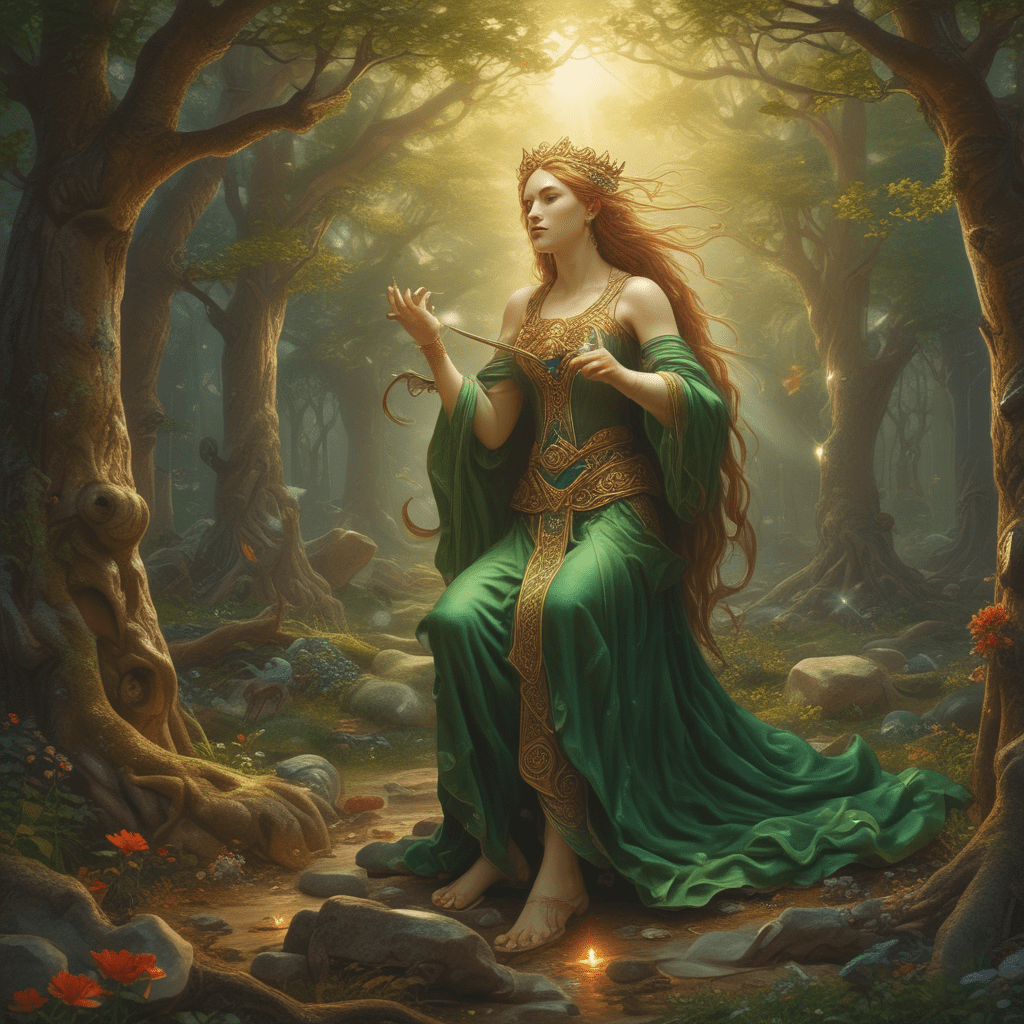The Role of Music and Poetry in Celtic Mythology
The Importance of Music and Poetry in Celtic Culture
In Celtic mythology, music and poetry hold significant importance as they are deeply intertwined with the beliefs, rituals, and storytelling traditions of the Celtic people. Music and poetry were not merely forms of entertainment but were regarded as sacred arts that connected mortals with the divine realm. The bards, poets, and musicians played crucial roles in preserving and passing down the rich tapestry of Celtic myths and legends through oral traditions.
The Power of Music and Poetry in Celtic Mythology
Music and poetry were believed to have transformative powers in Celtic mythology. The haunting melodies of the harp, the ethereal songs of the singers, and the evocative verses of the poets were all believed to have the ability to transport listeners to otherworldly realms, evoke deep emotions, and even communicate with the spiritual beings of the Celtic pantheon. These art forms were used in rituals, ceremonies, and festivals to honor the gods, invoke protection, and seek wisdom from the supernatural forces.
Symbols and Themes in Celtic Music and Poetry
Celtic music and poetry were rich in symbolism and themes that reflected the Celtic worldview and mythology. The symbols of nature, elements, animals, and mythological figures were intricately woven into the lyrics of songs and verses of poems. By listening to music or reciting poetry, the listeners could immerse themselves in the stories of brave heroes, wise druids, enchanting fairies, and fierce deities that populated the Celtic myths.
Legacy of Music and Poetry in Modern Celtic Culture
The tradition of music and poetry in Celtic mythology continues to thrive in modern times. Celtic music with its distinctive tunes and instruments like the fiddle, tin whistle, and bodhran, preserves the ancient melodies that resonated through the Celtic lands. Contemporary poets draw inspiration from the poetic forms and linguistic heritage of the Celts to create works that celebrate their cultural legacy. By keeping the traditions of music and poetry alive, the modern descendants of the Celts honor their ancestors and keep the timeless tales of Celtic mythology alive for future generations.
FAQ about The Role of Music and Poetry in Celtic Mythology
What is the significance of music and poetry in Celtic mythology?
In Celtic mythology, music and poetry play essential roles. They are considered powerful tools for storytelling, preserving history, invoking emotions, and connecting with the divine.
How do music and poetry influence Celtic myths and legends?
Music and poetry are believed to act as bridges between the earthly realm and the spiritual world in Celtic culture. They enhance the storytelling of myths, convey emotions, and serve as channels to honor deities and heroes.
What instruments and poetic forms are commonly associated with Celtic mythology?
Instruments like harps, flutes, and drums have significant roles in Celtic music, often accompanying myths and folklore. Poetic forms such as epic poetry, bardic verses, and lyrical compositions are used to recount tales of gods, goddesses, and legendary figures.



